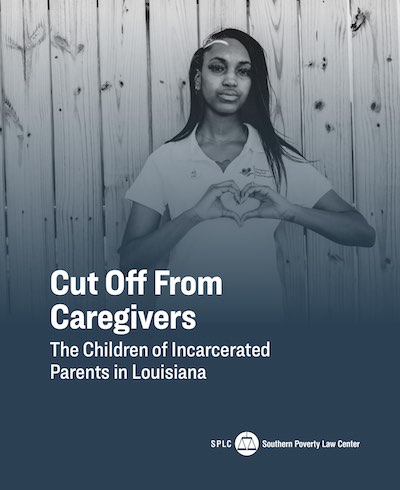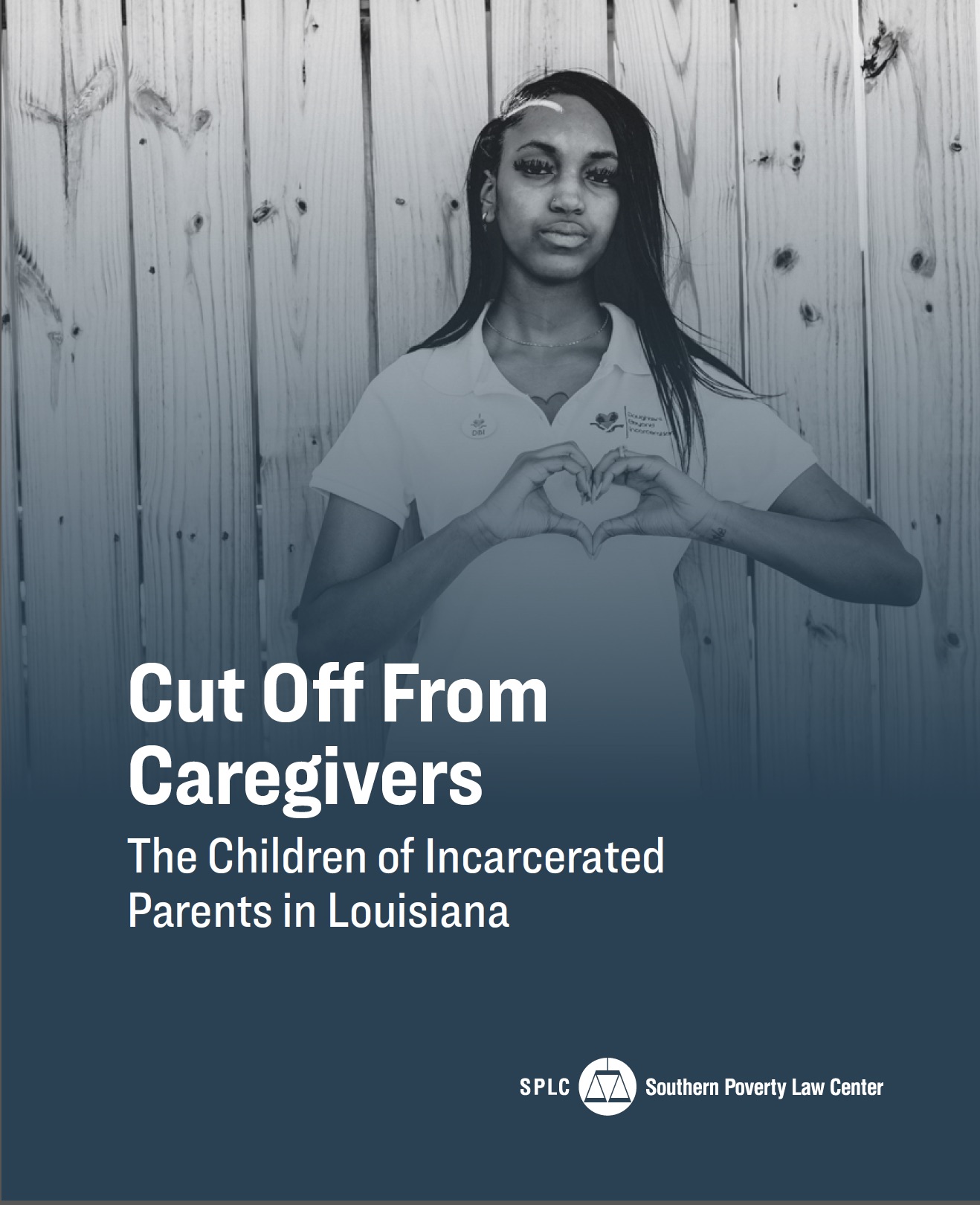An estimated 94,000 children in Louisiana have a parent who is behind bars, with devastating effects on children and families. The entire family serves this sentence.
Parental incarceration is a growing epidemic. Nationally, one in 28 children experiences parental incarceration today, compared to one in 125 children in 1985. Black children are particularly affected by caregiver incarceration, as 11.4% of Black children experience parental incarceration, compared to 1.8% of their white peers. This is of little surprise, as Black people are disproportionately represented in the prison system, due to historic social and economic inequality.
The incarceration of a caregiver can hamstring a child’s development and leave already struggling families financially strapped. As the parent-child bond is critical to a child’s development, the severance of that bond by the incarceration of a parent can have effects that stretch into adulthood. A child who has a parent who is incarcerated is likely to experience social and emotional consequences. The trauma caused by having a parent who is incarcerated undoubtedly impairs a child’s mental and physical health.
Witnessing the arrest of a parent and the following struggle to maintain contact with loved ones can expose a child to further trauma. The visiting process can be difficult and exhausting for children who are unable to make physical contact with their caregiver and are only able to see that person in prison uniforms and chains. While some children maintain contact with their loved ones through visitation and phone calls, others have this ability stripped away from them. Children who are funneled into the foster care system have their bond with their parents more permanently severed, while their incarcerated caregivers have had custody stripped away from them.
The incarceration of a parent could also lead to a child displaying trauma in school, often resulting in punitive disciplinary responses that have the potential to cut short students’ education and increase the likelihood that they themselves will be incarcerated. The struggle that a child of an incarcerated parent experiences in school may go unnoticed by educators, leading these children to suffer in silence.
Families with incarcerated loved ones also suffer the financial consequences of incarceration. Already struggling families will be left to fend for themselves, as their incarcerated loved ones are often the primary breadwinners of the family. The loss of this financial stability increases the risk that children of incarcerated caregivers will sink into poverty or be at risk of homelessness. Additional strain is placed upon these families via the costs of prison phone calls, visitation, and court costs and fees.
It is clear that Louisiana must do more to reduce and, ultimately, eliminate mass incarceration. In 2020, in an effort to address the effects of parental incarceration on children, Louisiana passed legislation to create the Council on the Children of Incarcerated Parents and Caregivers (the Council) within the Office of the Governor. The Council is made up of stakeholders in the justice system and caregivers and children impacted by incarceration. It is charged with studying the effects of incarceration on children and recommending policy changes as a result of its findings. The Council’s first meeting was March 4, 2021.
This brief serves as a roadmap for the Council as it carries out its work: defining the problem in Louisiana and outlining how the Council should develop its recommendations to address the problem.
Read the report by clicking on the image below.
Photo courtesy of Daughters Beyond Incarceration





